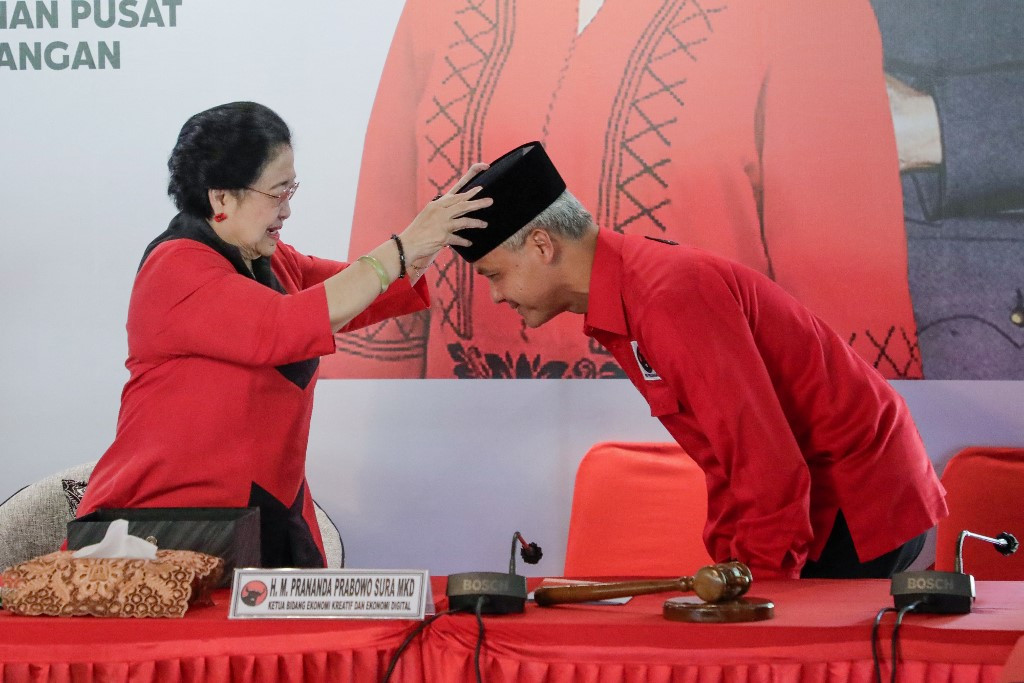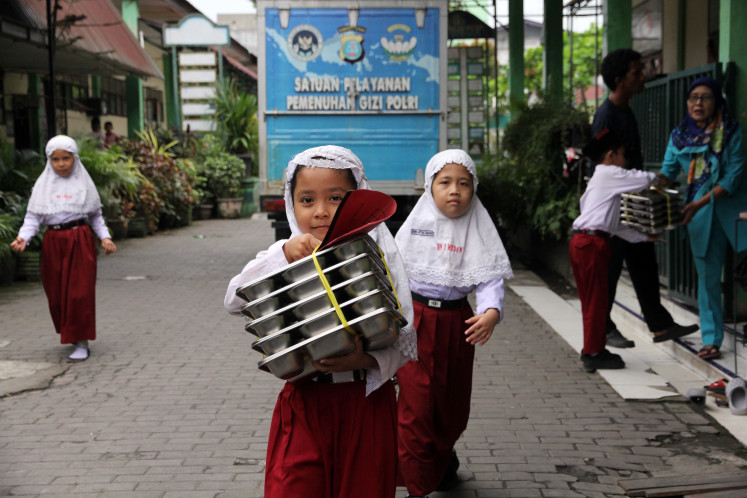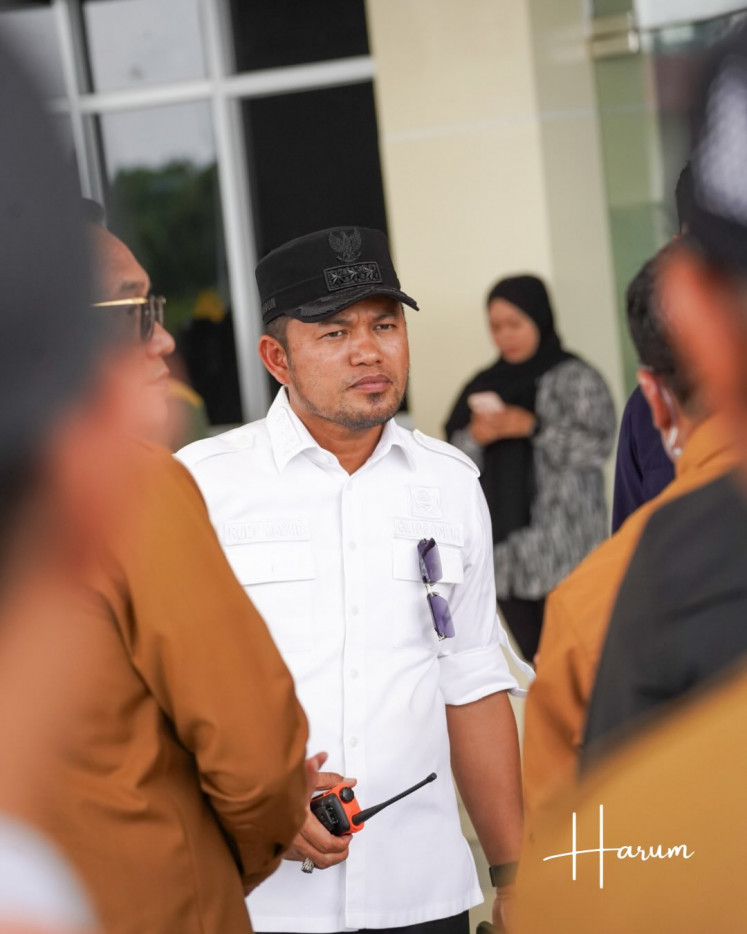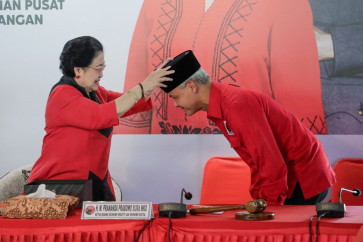Popular Reads
Top Results
Can't find what you're looking for?
View all search resultsPopular Reads
Top Results
Can't find what you're looking for?
View all search resultsGanjar’s electability rebounds after U-20 slump
Ganjar is seen as regaining momentum for his presidential bid.
Change text size
Gift Premium Articles
to Anyone
 Indonesian Democratic Party of Struggle (PDI-P) chairwoman Megawati Soekarnoputri (left) puts a 'peci' (cap) on Central Java Governor Ganjar Pranowo's head after he is selected by the country's largest political party as its candidate for the 2024 presidential election in Bogor, West Java, on April 21. ( AFP/Indonesian Democratic Party of Struggle (PDI-P))
Indonesian Democratic Party of Struggle (PDI-P) chairwoman Megawati Soekarnoputri (left) puts a 'peci' (cap) on Central Java Governor Ganjar Pranowo's head after he is selected by the country's largest political party as its candidate for the 2024 presidential election in Bogor, West Java, on April 21. ( AFP/Indonesian Democratic Party of Struggle (PDI-P))

Presidential hopeful Ganjar Pranowo’s electability has steadily rebounded after suffering a downturn earlier in April due to his refusal to allow the Israeli soccer team to play in Indonesia, which cost the country the hosting of the FIFA Under-20 World Cup.
The Central Java governor, who was recently granted the presidential nomination by his Indonesian Democratic Party of Struggle (PDI-P), was toeing his party’s line when he publicly voiced his opposition to the Israeli involvement in the sporting event. While other PDI-P officials made similar statements, Ganjar took the hardest hit, with soccer fans pinning the blame on him for costing the rare chance for Indonesia to compete in a global soccer competition, and quickly storming his official social media account.
At least two recent election surveys indicated that Ganjar had regained the momentum for his presidential bid even before his nomination last month.
A survey by pollster Indikator Politik Indonesia, which interviewed some 1,220 respondents between April 11 and 17, just days before Ganjar’s presidential nomination but well after his U-20 fiasco, found that Ganjar was back in the game. In a three-horse race scenario, his electability now stands at 34 percent, followed by Gerindra Party leader Prabowo Subianto with 31.7 percent and former Jakarta governor Anies Baswedan with 25.2 percent.
This is a 6-percentage point increase for Ganjar compared with a similar survey taken from April 8-13, which saw Prabowo landing in the top spot for the first time in months.
A survey from pollster Saiful Mujani Research and Consulting (SMRC), released on Saturday found that Ganjar's electability among what it calls critical voters has increased by 7 percent after being handed the presidential nomination by his party.

“Critical voters are those who have better access to social and political information by virtue of owning phones with internet access […] They are generally more educated and tend to live in urban areas,” SMRC research director Deni Irvani said on Monday.

















